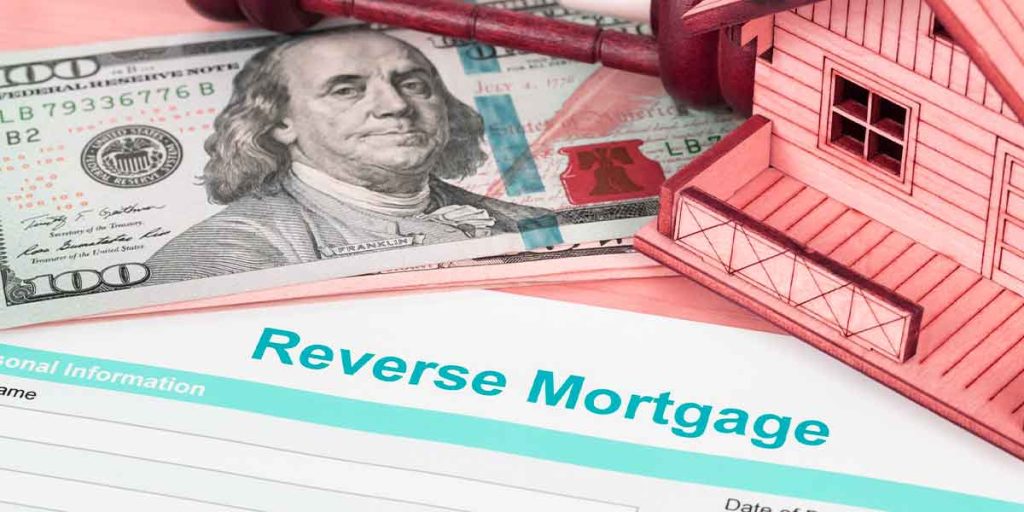Empower Your Retirement: The Smart Means to Purchase a Reverse Home Mortgage
As retired life strategies, lots of individuals look for efficient methods to improve their financial freedom and wellness. Amongst these methods, a reverse mortgage arises as a practical option for property owners aged 62 and older, enabling them to tap into their home equity without the requirement of monthly repayments. While this financial device provides numerous benefits, consisting of raised money circulation and the potential to cover crucial costs, it is important to understand the ins and outs of the application procedure and essential factors to consider involved. The following steps may expose just how you can make a well-informed decision that might considerably affect your retired life years.
Understanding Reverse Mortgages
Recognizing reverse mortgages can be important for homeowners looking for monetary versatility in retired life. A reverse home mortgage is a monetary product that enables eligible home owners, commonly aged 62 and older, to convert a part of their home equity right into cash. Unlike traditional home loans, where debtors make monthly settlements to a lender, reverse mortgages make it possible for property owners to receive settlements or a lump sum while preserving ownership of their home.
The quantity offered via a reverse home loan depends on numerous aspects, including the property owner's age, the home's value, and present rates of interest. Importantly, the finance does not need to be paid off up until the home owner markets the home, leaves, or passes away.
It is crucial for possible customers to recognize the implications of this monetary item, including the effect on estate inheritance, tax factors to consider, and recurring duties connected to building maintenance, tax obligations, and insurance coverage. Furthermore, counseling sessions with licensed experts are typically called for to ensure that consumers totally comprehend the terms of the finance. Overall, a thorough understanding of reverse home mortgages can empower home owners to make enlightened choices concerning their economic future in retired life.
Benefits of a Reverse Mortgage
A reverse mortgage supplies several compelling benefits for qualified homeowners, especially those in retirement. This financial tool allows senior citizens to convert a portion of their home equity into cash money, offering essential funds without the demand for regular monthly home loan settlements. The money obtained can be utilized for numerous objectives, such as covering medical expenses, making home renovations, or supplementing retirement income, therefore improving overall monetary versatility.
One substantial benefit of a reverse mortgage is that it does not require settlement till the homeowner vacates, offers the home, or passes away - purchase reverse mortgage. This attribute enables retired people to preserve their way of living and satisfy unexpected expenses without the problem of regular monthly repayments. Furthermore, the funds gotten are generally tax-free, allowing property owners to utilize their cash without fear of tax effects
In addition, a reverse home loan can provide comfort, understanding that it can function as an economic safeguard during difficult times. Property owners also maintain possession of their homes, guaranteeing they can continue living in an acquainted atmosphere. Inevitably, a reverse home loan can be a calculated monetary resource, encouraging retirees to manage their funds properly while enjoying their golden years.
The Application Refine
Navigating the application process for a reverse home mortgage is a crucial step for homeowners considering this monetary choice. The initial stage involves evaluating qualification, which usually needs the homeowner to be a minimum of 62 years old, very own the home outright or have a low mortgage balance, and inhabit the home as their main house.
Once eligibility is confirmed, home owners should undertake a counseling session with a HUD-approved counselor. This session makes sure that they fully recognize the implications of a reverse home loan, consisting of the obligations involved. purchase reverse mortgage. After completing therapy, applicants can continue to gather essential documents, including evidence of income, assets, and the home's value
The next step requires sending an application to a lender, who will certainly assess the financial and building credentials. An appraisal of the home will additionally be conducted to establish its market value. If authorized, the lending institution will certainly present financing terms, which ought to be assessed carefully.
Upon acceptance, the closing process adheres to, where final documents are signed, and funds are disbursed. Recognizing each phase of this application procedure can dramatically More hints enhance the house owner's confidence and decision-making relating to reverse mortgages.

Key Factors To Consider Before Purchasing
Purchasing a reverse home mortgage is a substantial financial choice that requires mindful consideration of a number of crucial elements. Assessing your financial demands and goals is just as essential; determine whether a reverse home mortgage lines up with your lasting plans.

Furthermore, assess the effect on your existing way of life. A reverse home mortgage can affect your qualification for particular government benefits, such as Medicaid. Look for expert advice. Consulting with an economic expert or a real estate therapist can supply valuable understandings customized to your private circumstances. By thoroughly assessing these considerations, you can make a more enlightened choice about whether a check over here reverse home mortgage is the ideal financial strategy for your retired life.
Making the Most of Your Funds
When you have secured a reverse home mortgage, effectively taking care of the funds ends up being a concern. The flexibility of a reverse home mortgage permits homeowners to use the funds in different means, but critical planning is important to optimize their benefits.
One crucial strategy is to create a budget that describes your economic objectives and monthly expenditures. By determining essential expenditures such as healthcare, property taxes, and home upkeep, you can allocate funds accordingly to ensure lasting sustainability. Additionally, think about making use of a portion of the funds for financial investments that can generate income or value gradually, such as dividend-paying supplies or shared funds.
One more vital aspect is to preserve an emergency situation fund. Reserving a get from your reverse home mortgage can aid cover unexpected prices, supplying comfort and economic security. Seek advice from with an economic expert to discover possible tax effects and exactly how to incorporate reverse home loan funds into your general retirement approach.
Eventually, sensible administration of reverse mortgage funds can enhance your financial safety, enabling you to appreciate your retired life years without the stress of economic uncertainty. Cautious planning and notified decision-making will guarantee that your funds work successfully for you.
Conclusion
To conclude, a reverse home mortgage offers a feasible monetary technique for elders looking for to improve their retirement experience. By transforming home equity into obtainable funds, people can attend to necessary costs and safe and secure added monetary resources without sustaining month-to-month settlements. Careful consideration of the linked ramifications and terms is important to maximize benefits. Ultimately, leveraging this economic device can help with better self-reliance and boost overall lifestyle throughout retirement years.
Recognizing reverse home loans can be essential for home owners seeking monetary adaptability in retirement. A reverse home mortgage is a monetary item that enables qualified homeowners, normally aged 62 and older, to transform a portion of their home equity into cash money. Unlike traditional home loans, where consumers make monthly payments to a loan provider, reverse home loans allow home owners to receive settlements or a lump sum while maintaining possession of their residential property.
Generally, a thorough understanding of reverse mortgages can encourage house owners to make enlightened choices regarding their monetary future in retirement.
Seek advice from with a monetary consultant to check out possible tax implications and how to integrate reverse mortgage funds right into your total retired life purchase reverse mortgage method.